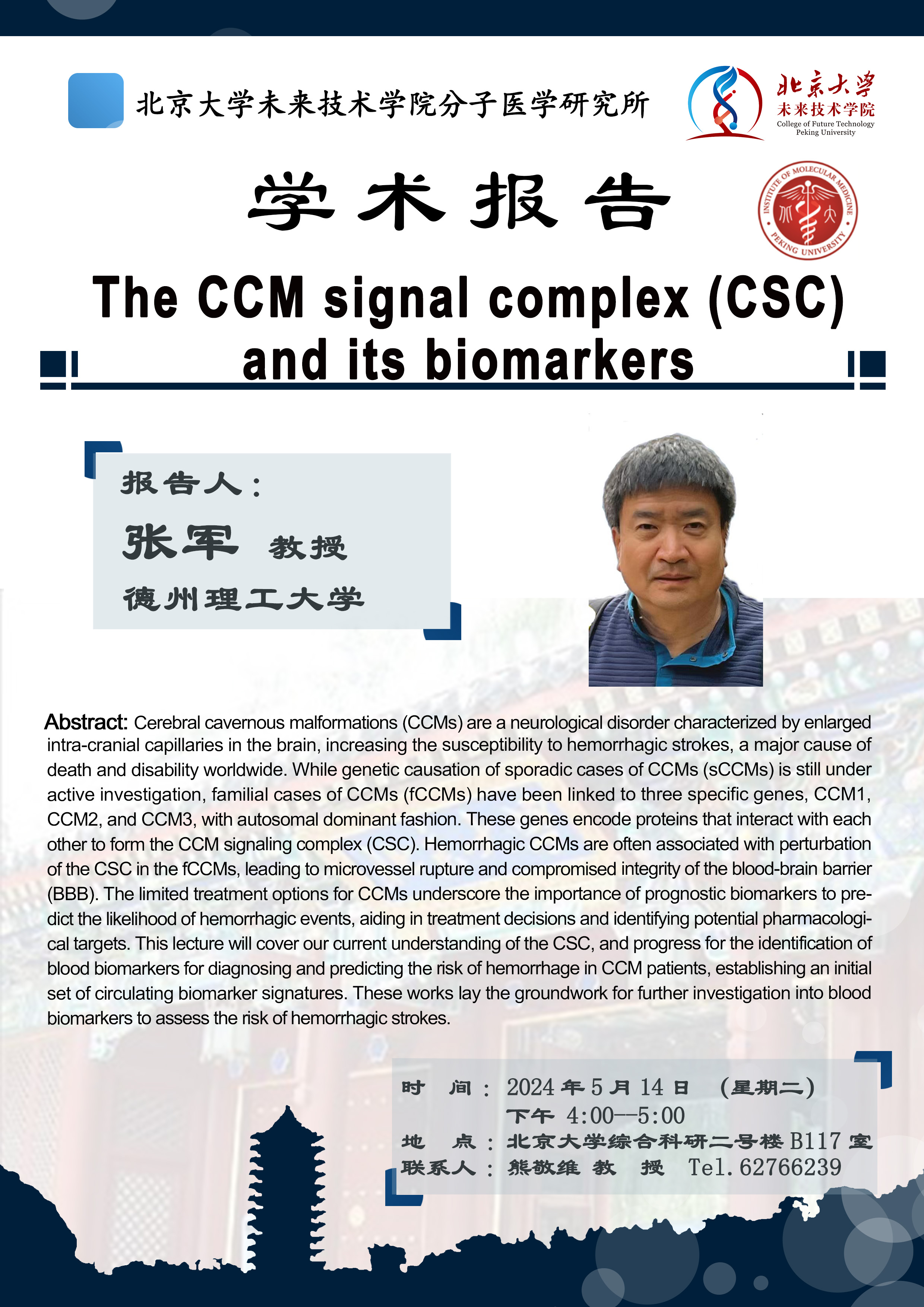
Speaker: Pro. Zhang Jun, Texas Tech University
Time: 16:00-17:00 p.m., May 14, 2024, GMT+8
Venue: Rm B117, Research Complex #2, PKU
Abstract:
Cerebral cavernous malformations (CCMs) are a neurological disorder characterized by enlarged intra-cranial capillaries in the brain, increasing the susceptibility to hemorrhagic strokes, a major cause of death and disability worldwide. While genetic causation of sporadic cases of CCMs (sCCMs) is still under active investigation, familial cases of CCMs (fCCMs) have been linked to three specific genes, CCM1,CCM2, and CCM3, with autosomal dominant fashion. These genes encode proteins that interact with each other to form the CCM signaling complex (CSC). Hemorrhagic CCMs are often associated with perturbation of the CSC in the fCCMs, leading to microvessel rupture and compromised integrity of the blood-brain barrier(BBB). The limited treatment options for CCMs underscore the importance of prognostic biomarkers to predict the likelihood of hemorrhagic events, aiding in treatment decisions and identifying potential pharmacological targets. This lecture will cover our current understanding of the CSC, and progress for the identification of blood biomarkers for diagnosing and predicting the risk of hemorrhage in CCM patients, establishing an initial set of circulating biomarker signatures. These works lay the groundwork for further investigation into blood biomarkers to assess the risk of hemorrhagic strokes.
Source: School of Life Sciences, PKU